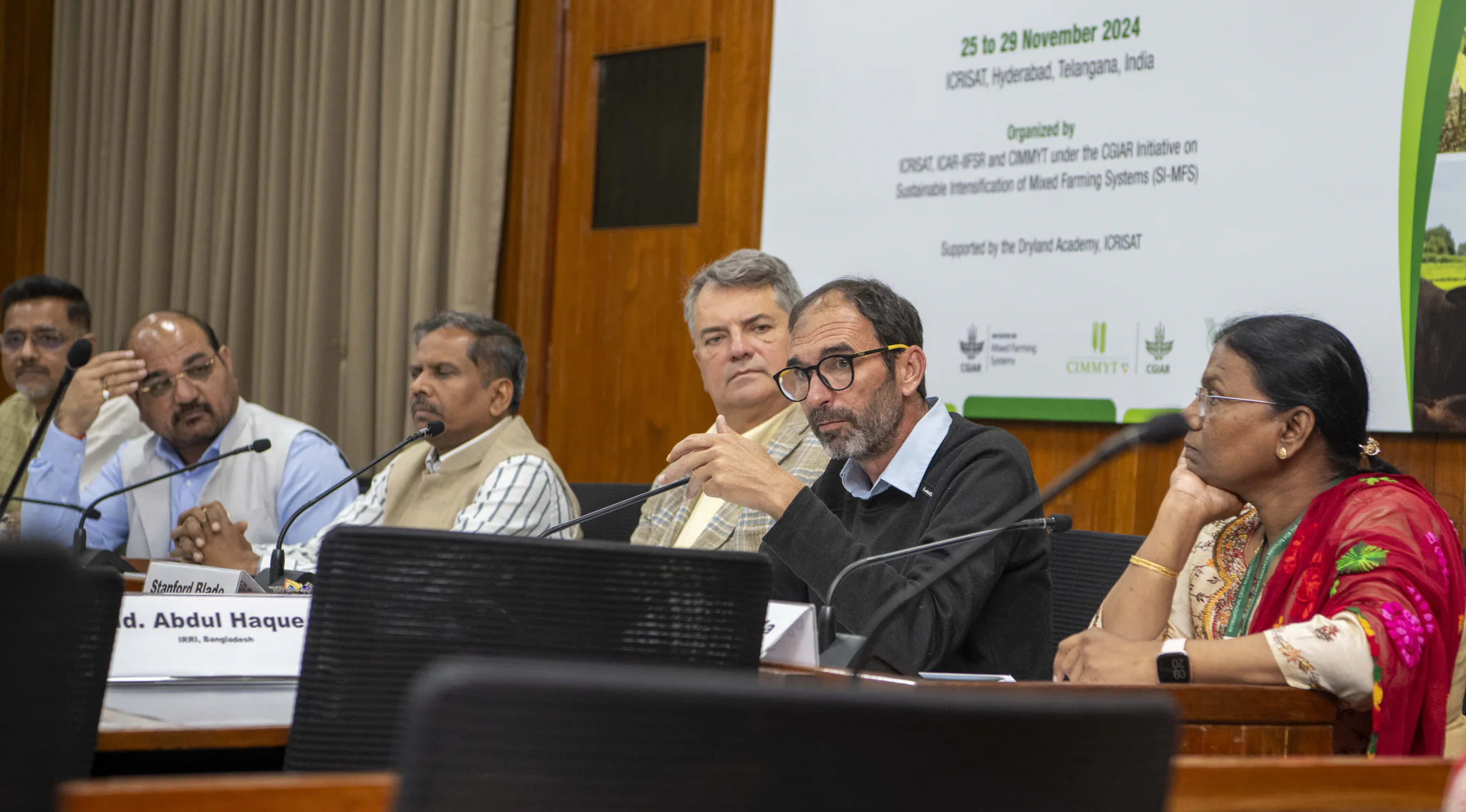ICRISAT Trains Scientists in Climate-Smart Solutions for Sustainable Farming
The International Crops Research Institute for the Semi-Arid Tropics (ICRISAT) recently trained 23 agricultural scientists from India, Nepal, Bangladesh, Laos, Malawi, and Zimbabwe on climate-smart farming models. This initiative, part of the CGIAR Initiative on Sustainable Intensification of Mixed Farming Systems (SI-MFS), emphasizes the adoption of sustainable solutions for smallholder farmers worldwide.
The workshop introduced advanced tools like Crop-Livestock Enterprise Modeling (CLEM) and Farm Design. These tools help analyze synergies and trade-offs within mixed farming systems, enabling participants to develop balanced and sustainable solutions. Mixed farming systems, which integrate crops, livestock, and other enterprises, are pivotal for smallholder farmers facing the challenges of climate change.
Dr. Santiago Lopez Ridaura, co-lead of the CGIAR’s SI-MFS initiative, emphasized the complexity of small-scale farming and the necessity of interdisciplinary approaches to address trade-offs effectively. "Our best success story is when national institutes incorporate these tools into their work," he remarked.
Collaborating with the ICAR-Indian Institute of Farming Systems Research (IIFSR) and the International Maize and Wheat Improvement Centre (CIMMYT), ICRISAT highlighted significant progress in India. Dr. Sunil Kumar, Director of ICAR-IIFSR, shared insights on 75 prototype models developed for diverse zones in the country. These models aim to bridge the lab-to-land gap, ensuring policies support ground-level adoption.
Dr. Stanford Blade, Director-General (Interim) at ICRISAT, stressed the importance of utilizing systems-thinking tools to avoid disrupting interconnected farming components. Balanced interventions are vital for fostering resilient, inclusive, and profitable farming practices.
Such training programs are critical for scaling climate-smart solutions and enabling agricultural communities to address environmental and economic challenges effectively. By fostering interdisciplinary collaboration and integrating advanced tools, ICRISAT continues to drive progress in sustainable agriculture globally.
Read More






 Wednesday, 04-02-26
Wednesday, 04-02-26







